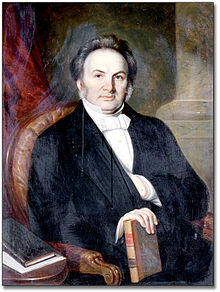Posts Tagged ‘study skills’
 “7 tips on prepping for exams.” – R. Hilton-Eddy
“7 tips on prepping for exams.” – R. Hilton-Eddy
Tuesday, November 30, 2010. Today I am grateful for the great life I’ve had helping children and adults triumph over learning difficulties. I am also grateful for others who have helped historically, and those who are presently helping students overcome learning problems. An example is those at the Learning Success Centre, Ryerson University, Toronto, Ontario, CANADA.
Images below from: http://en.wikipedia.org/wiki/Ryerson_University
Egerton Ryerson (1803-1882)
Student Services – Learning Success Centre – Ryerson University The Learning Success Centre is dedicated to helping students reach their academic potential by providing professional resources that develop sound learning … http://www.ryerson.ca/learningsuccess/
“Reed Hilton-Eddy, a learning strategist at Ryerson University’s Learning Success Centre, offers these helpful strategies to help students manage exam anxiety and study effectively so they can pass their finals with flying colors.
Tip 1: Be an active learner
Choose to be “doing” something with your material such as paraphrasing, creating and answering questions, completing practice tests from the textbook, drawing diagrams or making charts.
Tip 2: Manage your time wisely
a) Determine between now and your exam date how many hours you can dedicate to exam preparation — keep in mind your own pacing, the need for breaks, other school work and personal commitments.
b) Weigh your study time according to the amount of material you need to cover. For example, if you have 10 hours to study and 5 chapters, you should try to give 2 hours per chapter. However, this would change if you need to spend more time reviewing the more important chapters.
c) Make sure you plan what you are supposed to be doing during those study sessions. Establish goals or benchmarks you need to reach and resist the urge to stop early.
Tip 3: Speak positively to yourself
Watch what you are saying to yourself during your exam preparation and before and during an exam. Instead of saying to yourself: “Don’t panic, don’t fail, don’t screw up,” try more supportive thoughts such as: “I am calm, I am prepared” or “I am relaxed.”
Tip 4: Practice
Create mock exams for yourself and time them so you can get used to performing under [time] pressure.
Tip 5: Ask Questions
Seek help early if you don’t understand concepts presented in a lecture or in the readings. It is important to ask the professor, a teaching assistant or peer for assistance because that concept that is confusing you is often linked to other material in the course.
Tip 6: Feeling nervous is normal during exams
Keep in mind that experiencing some jitters is normal and may help you do well in an exam. But if you find that being very nervous is impacting your performance, seek support — most institutions have onsite counselling.
Tip 7: Avoid Distractions
When you are studying, make it your priority. This means turning off MSN, cell phones, Facebook, etc. On the day of the exam, avoid other nervous students. Instead, you should use the few moments beforehand to relax and gather your thoughts, not teach yourself or peers course material.”
– Reed Hilton-Eddy, Learning Strategist, Learning Success Centre, Ryerson University, Toronto, Ontario, CANADA [Reported in the newspaper: 24H > Calgary, Monday, November 29, 2010, page 11.]
Thank you, Reed, for being a learning leader!
Doc Meek, Tuesday, November 30, 2010, at Nose Hill Public Library, Calgary, Alberta, CANADA
J. Collins Meek, Ph.D. (Doc Meek)
“What if you are smarter than you think?”
Learning Specialist https://docmeek.com
For brain health, ensure heart health (short video):
http://www.amiraclemolecule.com/themeekteam
More on heart health http://www.themeekteam.info
Ph (801) 971-1812 (Jeannette); Fax [801] 282-6026
THE LEARNING CLINIC WORLDWIDE, INC.
CANADA: P.O. Box 3105, Sherwood Park, AB T8H 2T1
TONGA: Mele Taumoepeau, P.O. Box 60, Nuku’alofa
USA: 3688 W 9800 S, #138, South Jordan, UT 84095
=======================================




